Turkey wages lengthy battle for Kurdish stronghold
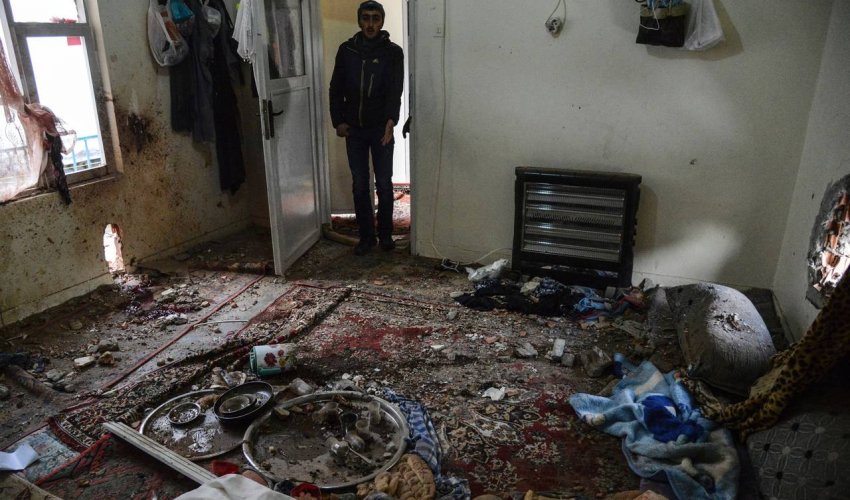
Inside the fortress walls of this city on the Tigris River, bomb-making Kurdish militants are facing down Turkish tanks, the bodies of Kurdish fighters lie in snow-covered streets, and thousands of civilians are trapped in their homes by fighting that shows no signs of easing up.
Turkey’s military operation in this Kurdish stronghold is meant to deal a crushing blow to the aspirations of an emboldened new generation of Kurdish militants fighting for self rule in a country that suppressed their rights for decades.
But few people expect the showdown in the heart of Diyarbakir—the de facto Kurdish capital and site of one of three major military operations across southeastern Turkey against Kurdish militants—to bring an end to the monthslong insurgency that has claimed hundreds of lives.
"Welcome to hell,” said one member of Turkey’s elite police force keeping watch at a sandbagged checkpoint after Kurdish militants opened fire from a nearby street.
Turkish police have detained scores of Kurdish leaders across the country. President Recep Tayyip Erdogan is backing efforts to strip the country’s most prominent Kurdish politician of immunity so he can be charged for betraying his country. And the growing power of American-backed Kurdish fighters in neighboring Syria—who are spearheading the fight against Islamic State—is propelling Kurdish activists in Turkey to push for their own self rule.
"Every day that goes by, the distance between Ankara and the [Kurdish] region is growing,” said Henri Barkey, director of the Middle East Program at the Woodrow Wilson International Center for Scholars in Washington.
To most Turks living outside Diyarbakir’s ancient citadel walls, the military operation inside the city is something they see only in television images of flag-draped solders’ coffins and civilians fleeing urban battle zones.
But the outcome of the broader military operation is likely to have a major impact on the rekindled aspirations of millions of ethnic Kurds in Turkey, whose ancestors’ hopes of building a Kurdish nation were thwarted by world powers after World War I.
Kurdish leaders say they want to make sure they don’t let this new opportunity slip away. "The fate of the Middle East is being rewritten,” said Selahattin Demirtas, the top Kurdish lawmaker whom Mr. Erdogan wants to see stripped of parliamentary immunity. "As Kurds, we don’t want the mistakes made 100 years ago to be made again.”
Mr. Demirtas leads a political group drawing inspiration from the successes of American-backed Kurdish militants in neighboring Syria, where they are governing an autonomous region carved out of parts of the country they’ve seized from Islamic State rivals.
"The Kurds are a growing power in the Middle East,” Mr. Demirtas said in an interview last week with The Wall Street Journal.
Emboldened by the gains in Syria and prodded by Mr. Erdogan’s efforts to marginalize his pro-Kurdish Peoples’ Democratic Party, Mr. Demirtas is stepping up his calls for self-rule, a politically charged stance in Turkey that skeptics see as a precursor to Kurdish demands for outright independence.
That is becoming an increasing concern for Mr. Erdogan, who has championed the expanding military and political crackdown on Kurdish activists and insurgents across the country.
One of the most important battlegrounds is in Diyarbakir, where more than 2,000 Turkish security forces have spent weeks battling small numbers of Kurdish militants who have laid deadly booby traps throughout a neighborhood that is home to some of the oldest mosques in Islamic history.
Since Dec. 2, large parts of Diyarbakir’s Sur District have been under 24-hour curfew. Many of the 24,000 people living in the now-closed military zone have fled, said Huseyin Aksoy, the Ankara-appointed governor of Diyarbakir. About 4,000 residents are believed to be trapped in their homes while Turkish forces try to uproot what the governor estimates to be no more than 100 Kurdish militants.
Since mid-December, when Turkey sent 10,000 members of its security forces into a "decisive” military operation targeting thousands of Kurdish militants who have declared self-rule in parts of cities and towns across southeastern Turkey, more than 440 Kurdish fighters have been killed, according to the military.
"It is unacceptable for armed militants to be in the city center,” said Mr. Aksoy. "We respect people’s freedom of expression, but it becomes unacceptable when it turns to armed resistance.”
Turkish security forces are using tanks to demolish barricades erected by Kurdish militants to mark the neighborhoods where they say they won’t accept Turkish government rule. Some civilians trying to get out of harm’s way have to wave white flags as they flee.
Turkey has lost more than 200 members of security forces since the Kurdistan Workers’ Party, better known as the PKK, declared an end to a two-year-old cease-fire in July.
The government’s military operations have drawn criticism from political leaders like Mr. Demirtas, who criticized both sides for the violence and accused Turkish security forces of carrying out terrorist acts against civilians.
"Whoever attacks civilians is conducting terrorism,” he said. "It is also terrorism when the state conducts that against its people. In our country, the state is also doing that.”
Concerns about Turkey’s military operation in Diyarbakir were heightened by the death of Melek Alpaydin, a 42-year-old mother who was decapitated by a shell or rocket that crashed into her home outside the curfew zone while she was sitting down for an afternoon meal with her family.
Residents in the neighborhood said Ms. Alpaydin was killed by an artillery shell fired by the Turkish military on Jan. 3. Mr. Aksoy said investigators haven’t figured out if the woman was killed by a Turkish military shell or by a Kurdish militant’s rocket.
Ramazan Baylan, a 46-year-old neighborhood shop owner, described a gruesome scene when he rushed to the house after he heard the blast and found Ms. Alpaydin’s headless body.
"It was unimaginable,” he said. "These operations have ruined our psychology here. We listen to the clashes every night and fear for our lives. I cannot remember what I said five minutes ago. I am wrecked. We want this to end.”
Since July, more than 194 civilians like Ms. Alpaydin have been killed across southeastern Turkey, according to the International Crisis Group. While Turkish officials say they are doing all they can to avoid civilian casualties, the deaths have reinforced perceptions of local residents who see the military operation as part of a new attempt by the Turkish government to quash Kurdish appeals for self-rule in a country where they represent about 20% of the population.
"The barricades are a pretext,” said Feleknas Uca, a Kurdish lawmaker from Diyarbakir who could be stripped of parliamentary immunity for her outspoken views. "This is a war against the Kurdish people.”
The end of military operations in southeastern Turkey, which are expected to stretch through the winter, isn’t likely to bring a decisive close to a decadeslong conflict that has claimed more than 40,000 lives overall.
"Even if the military obtains this goal and crushes them, this will widen the gap and make it difficult to continue the dialogue,” said Sahismail Bedirhanoglu, a prominent Diyarbakir businessman.
Late last year, Mr. Bedirhanoglu was part of a local group that tried unsuccessfully to broker a truce that would have allowed the Kurdish militants to abandon their barricades without facing arrest. But the proposal was rejected by the PKK, he said.
"This is something bigger than us,” said Mr. Bedirhanoglu, who has been forced to effectively shut his 59-room boutique hotel on the edge of the curfew zone. "It has to do with Middle East dynamics.”
(WSJ)
www.ann.az
























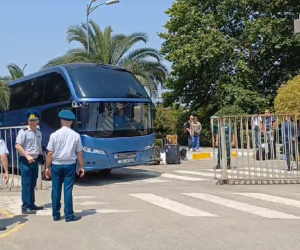
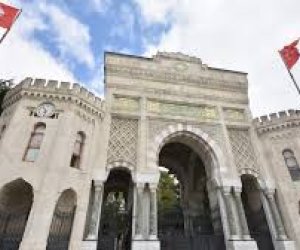

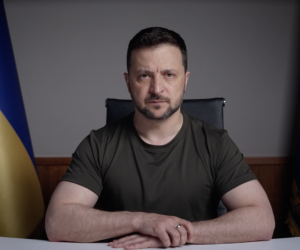
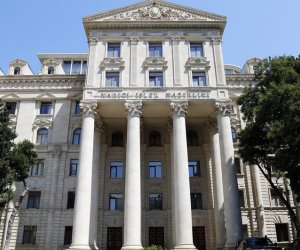
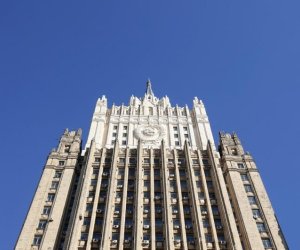
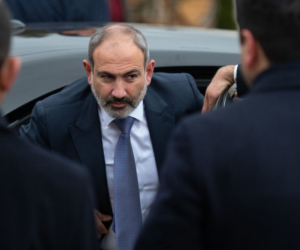
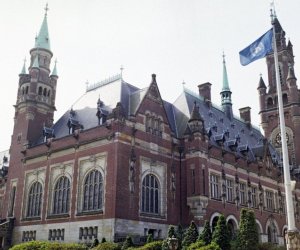
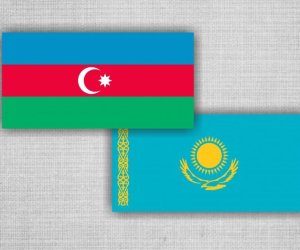



 Photo
Photo 



 Video
Video 

